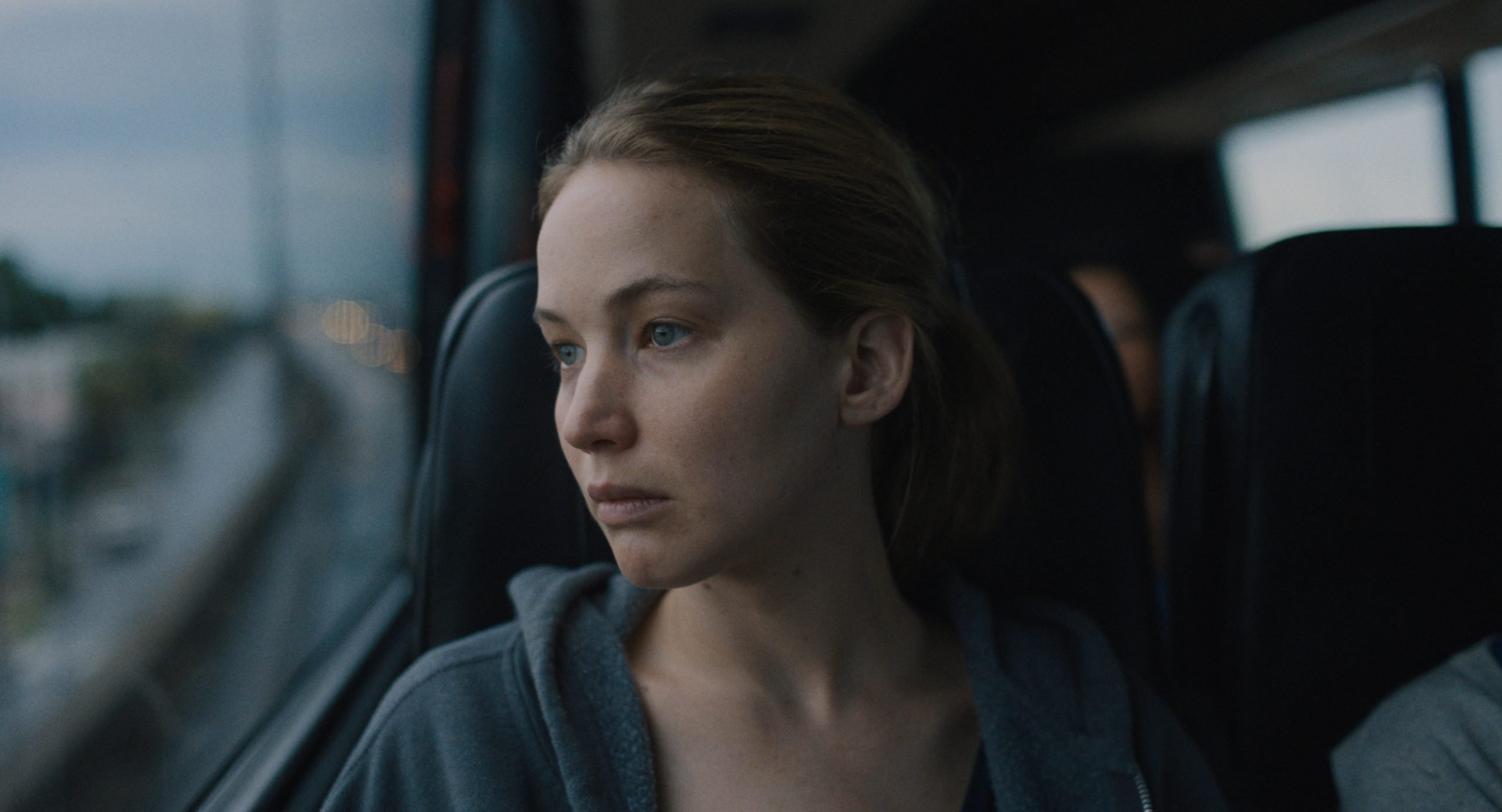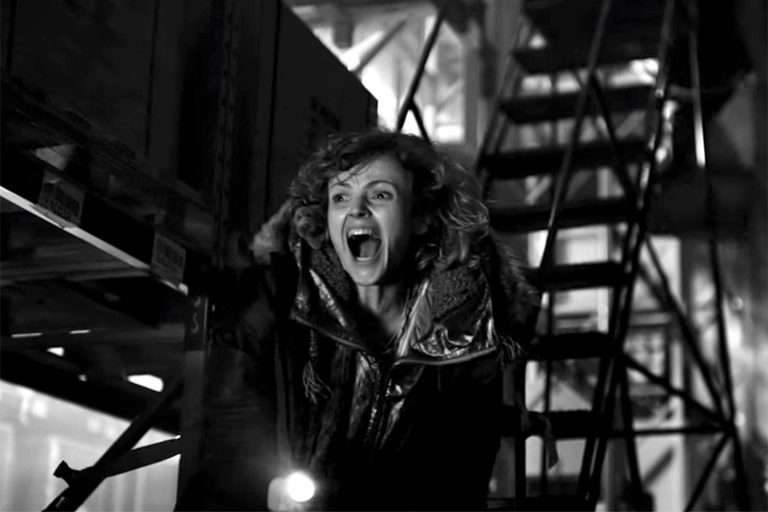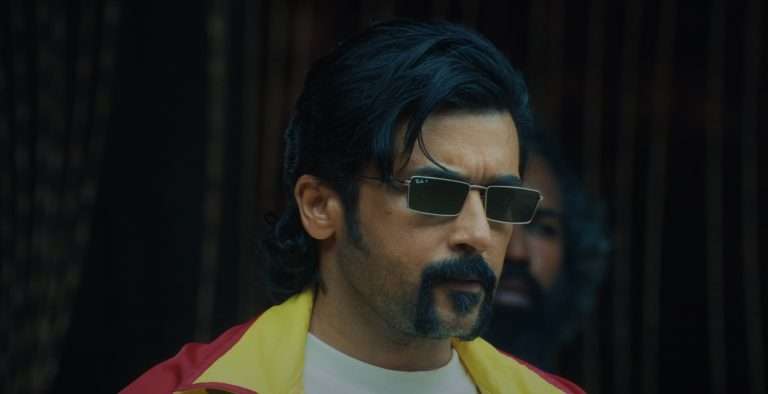After doing a couple of small-budget indie films, 2010 was the year when Jeniffer Lawrence really broke out with Debra Granik’s Sundance hit ‘Winter’s Bone.’ The breakout was so massive that studio tentpoles like X-Men and Young Adult phenomenons like ‘The Hunger Games’ roped her in and we never got to see her in any other grounded, real-to-the-bone narratives again. Sans the few David O. Russel outings (which to me feel no less than larger than life), Lawrence hasn’t really played a ‘real’ person in a long-long time. This is why watching her take centerstage in debutant Lila Neugebauer’s ‘Causeway’ comes off as a surprise.
Lawrence plays Lynsey, a U.S soldier, who returns back home after experiencing blunt brain injury due to an IED attack on tour in Afghanistan. The first time we meet her, she is buzzed out of her mind in a wheelchair. For the first few minutes, we don’t see her speak a word and she can barely stand on her own. Her memories are jaded and her assigned physical help is trying her best to help her fight the images that possibly haunt her. We are never clued into what happened to her exactly – unlike most PTSD dramas that feel like it is a great idea to show the triggers again and again. But we are always aware that something is not right with her, thanks to an incredibly understated and subtle performance by Lawrence.
However, after the initial stage of remembering and trying to stand up on her own, Lynsey wants to go back to her duties. It’s surprising for both us, and the doctors that a person who has the choice to not go back to the war zone after facing a fatal situation, chooses to go back anyway. We slowly get to know that since she can’t afford to stay in the treatment stage any longer, she has to go back to her home in New Orleans. When she reaches home a day earlier, she is not embraced or asked about by her mother Gloria (played by Linda Emond). So, essentially, she is all alone in the home that she has grown up in. Again, director Lila Meugrbauer chooses to not show us the trauma she has faced in the house, except for a few mentions of her brother; who resorted to drug abuse, and a mother who couldn’t care less about what her daughter wants and needs.
Her only relief in the scruffy town is the friendship she develops with James (Brian Tyree Henry), who she occasionally meets post her new work of cleaning pools, or simply when things in her head get a little weary for her to handle. The constant urge to go back to her duties is still there, even when her doctor keeps insisting that she needs to get better and choose a completely different path in life while being comfortable at home, but Lynsey, who claims that the trauma that she will face in the work field is more bearable than the one she has to face back home. Director Lila Neugebauer portrays this sense of unease in Lynsey with extremely broad strokes, and while it works within the narrative pace she has chosen, there’s always this feeling of being clued into fragments of things than anything substantial.
While this doesn’t completely take one out of the film, it makes the moving PTSD drama a little less affecting. This is why, the movie needs to be steered to the finish, not by what it wants to say, but by actors who inhibit these broken characters like a second skin. Both Lawrence and Brian Tyree Henry are exceptional in their respective characters and they make the chemistry they develop believable. Some of the sequences, especially the ones in the third act are really moving, making Causeway more than just a benign PTSD drama that feels overly exploitative. It becomes a movie about two lonely people trying to find a sense of place in the world and in each other.




![The Gentlemen [2020] Review: Of Ugly Laughs and Gentle Thrills](https://79468c92.delivery.rocketcdn.me/wp-content/uploads/2020/02/The-Gentlemen-2020-highonfilms-768x401.jpg)




![How it Ends [2021]: ‘SXSW’ Review – An Exuberant Comedy About the End of the World](https://79468c92.delivery.rocketcdn.me/wp-content/uploads/2021/04/How-it-Ends-1-768x432.jpg)